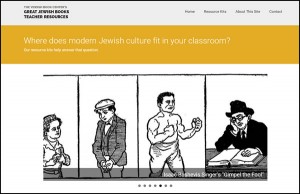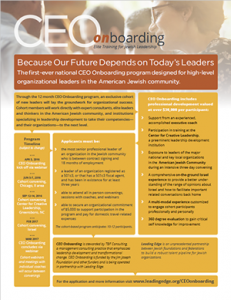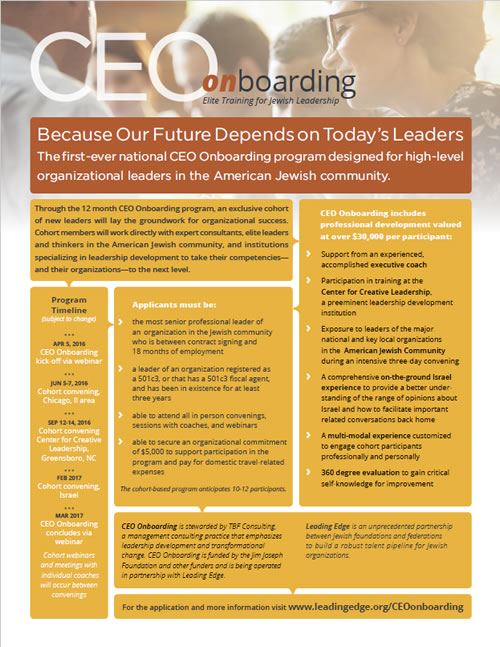Editor’s Note: The Jim Joseph Foundation supports Jewish educator training programs at institutions of higher education around the country. These programs help develop educators and education leaders with the skills to succeed in a variety of settings. This blog–the fourth in a series of reflections from participants in these training programs (read the first, second, and third blogs)–is from Erin Dreyfuss, a graduate of the Program in Experiential Education and Jewish Cultural Arts at The George Washington University. She is the Development Associate at the Edlavitch DC Jewish Community Center.
Almost all of my Jewish education has been experiential. As a convert to Judaism, I have learned Judaism and created a Jewish identity by doing, celebrating, schmoozing, eating, and absorbing everything around me. Through that process, I have come to appreciate the power of experiences to shape identity and I was hopeful that I could find a career that would allow me to create meaningful Jewish experiences for others. It was with this goal that I joined the inaugural cohort of the Program in Experiential Education and Jewish Cultural Arts (EEJCA) at The George Washington University in the summer of 2014.
During our EEJCA orientation, we received this piece of advice from Carole Zawatsky, the CEO of the Edlavitch DC Jewish Community Center (EDCJCC): “Your passion is your career path.” In the two years that followed, the EEJCA program, supported by the Jim Joseph Foundation, blazed a trail between passion and career for my fellow educators and me. Through a cross-disciplinary curriculum that combines the arts, education, Jewish history, and museum management, the EEJCA program prepares its students to create innovative and engaging programs that enrich contemporary Jewish life and strengthen Jewish identities. I am extremely fortunate to have learned from community leaders and my students and co-workers in fellowships with the Jewish Primary Day School of the Nation’s Capital and the EDCJCC’s Washington Jewish Music Festival. Each of these experiences was contextualized by classes that ranged in scope from the history of Jewish music to the implementation of organizational change.
My extracurricular involvement in Jewish life has grown right alongside my professional development; I continue my annual tradition of personal reflection by counting the omer on my blog dedicated to Jewish learning and I recently joined my synagogue’s Board of Directors. These commitments reflect perhaps the most important lesson that I learned during my time in the EEJCA program – that my passion can be my career path and more.
Erin Dreyfuss is a graduate of the Program in Experiential Education and Jewish Cultural Arts at The George Washington University. She is turning her passion into a career as the Development Associate at the Edlavitch DC Jewish Community Center. Follow her blog at GoAndLearnIt.blogspot.com.
 Children are served best in classrooms and other learning environments that consistently take into account their specific learning needs. The support children receive is most effective when it is offered throughout the entire day of learning—by all educators—as opposed to only specific periods of the day.
Children are served best in classrooms and other learning environments that consistently take into account their specific learning needs. The support children receive is most effective when it is offered throughout the entire day of learning—by all educators—as opposed to only specific periods of the day.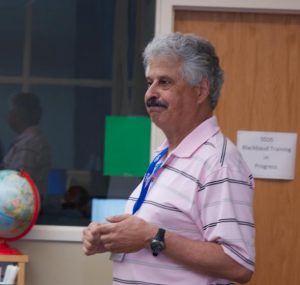
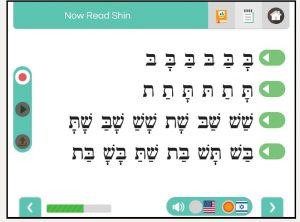 ng its fourth year, JCC Manhattan’s
ng its fourth year, JCC Manhattan’s  Synagogues and families tell JJP they are interested in the benefits that the Hebrew Homepage can offer all students, whether or not they are enrolled in JJP. Responding to this demand, JJP will roll out the Hebrew Homepage as a stand-alone service that any congregation or student can subscribe to, to strengthen their Hebrew acquisition. As a way of becoming a sustainable venture beyond the pilot funding phase, Hebrew Homepage will become a fee-for-service program that will help offset the philanthropic contributions that launched JJP.
Synagogues and families tell JJP they are interested in the benefits that the Hebrew Homepage can offer all students, whether or not they are enrolled in JJP. Responding to this demand, JJP will roll out the Hebrew Homepage as a stand-alone service that any congregation or student can subscribe to, to strengthen their Hebrew acquisition. As a way of becoming a sustainable venture beyond the pilot funding phase, Hebrew Homepage will become a fee-for-service program that will help offset the philanthropic contributions that launched JJP.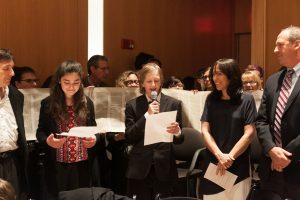 grade students and parents meet six times for family learning, and students meet weekly in their own class, Judaism On One Foot: Bring It Home and Making It Your Own. Students also study individually with a teacher to read and discuss their Torah portion, and develop a response to this portion that might be a video, musical performance, or an interactive experience for guests. The actual
grade students and parents meet six times for family learning, and students meet weekly in their own class, Judaism On One Foot: Bring It Home and Making It Your Own. Students also study individually with a teacher to read and discuss their Torah portion, and develop a response to this portion that might be a video, musical performance, or an interactive experience for guests. The actual  In San Francisco, the school year is about to end. Teachers and children (mine included!) are counting down the final days to summer. In the Jewish calendar, we are counting, too, but upwards rather than down as we mark the days of the Omer.
In San Francisco, the school year is about to end. Teachers and children (mine included!) are counting down the final days to summer. In the Jewish calendar, we are counting, too, but upwards rather than down as we mark the days of the Omer. “What are we hearing from families about choosing Jewish early childhood education?” “What are common challenges and opportunities in congregational education?” “How do macro trends impact Jewish learning/life programming and choices?”
“What are we hearing from families about choosing Jewish early childhood education?” “What are common challenges and opportunities in congregational education?” “How do macro trends impact Jewish learning/life programming and choices?”
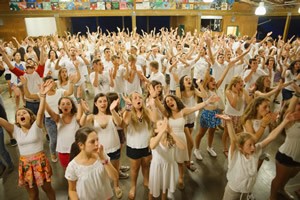
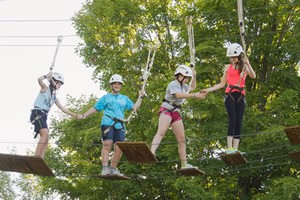
 When the
When the 